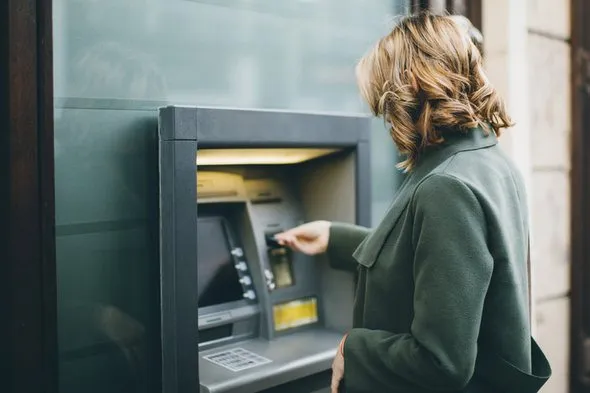It’s time to pay your electric bill. You send in the payment but then you get a notification that you’ve overdrawn your account. Now you have to pay an overdraft fee. This is a common fee and if you don’t pay it right away, it can get expensive. (That’s the last thing you want if you’ve just gone through the work to find a high-interest savings account.) Read on to learn more about overdraft fees and how you can avoid them.
Consider working with a financial advisor as you make personal finance decisions.
What Is an Overdraft Fee?
An overdraft occurs when you make a transaction that brings the balance of your bank account below zero. At that point, your bank account is considered overdrawn and you will have to pay what’s known as an overdraft fee.
Different types of banks charge different overdraft fees. On average the fee is about $35, but it could be anywhere from $10 to $40. Most banks charge an overdraft fee but there are some, particularly online banks, that don’t. If you’re considering an online bank, here’s a rundown of online vs. traditional banks.
Overdrafts can get expensive so it’s important to pay the fee as quickly as possible. Many banks also charge a fee for every day that your account is overdrawn. This fee could be as much as $5 or even $10.
Overdraft Fees at Popular Banks
| Bank | Overdraft Fee |
| Bank of America | $10 |
| Citi | No Fee |
| PNC Bank | $36 |
| Santander | $15 |
| TD Bank | $35 |
| U.S. Bank | $36 |
| Wells Fargo | $35 |
How an Overdraft Happens
When you attempt to overdraft your account, one of two things will happen. The first possibility is that your bank will return or decline the payment on the spot. In that case, you’re bank could charge you a non-sufficient funds (NSF) fee. You might also have to pay a fee from the vendor that you visited. A bank’s NSF fee is often the same as its overdraft fee. Because of old Federal Reserve rules, a bank can charge you high interest rates (without necessarily disclosing them beforehand) if it charges the same fee for an overdraft as it would for NSF transactions. The result is that banks are less likely to charge the NSF fee and more likely to go with the next option.
The second thing that could happen when you attempt to overdraft your account is that your bank automatically covers the cost of the transaction and then charges you an overdraft fee. This could happen with checks, with ATM withdrawals or at the point of sale for debit card transactions. As mentioned earlier, the amount that you overdraw is treated like a short-term loan and you will have to pay interest on it. The interest will stop accruing as soon as you pay the amount you owe.
How to Get an Overdraft Fee Waived
If you’ve been charged an overdraft fee, the first step is to contact your bank as soon as possible. Be polite and direct, and ask if they can waive the fee. Banks are more likely to grant a one-time waiver if you rarely overdraw your account or have been a long-time customer with a solid record. You can call customer service, send a secure message through online banking, or visit a branch in person.
When making the request, briefly explain what happened and why the overdraft occurred. For example, you might mention a timing issue with deposits or an unexpected charge. Some banks have automated systems that allow fee reversal through mobile apps, especially if the overdrawn amount was small or corrected quickly. If the bank denies the request, ask if they offer overdraft protection or other account options to help avoid future fees.
Opting Out of Automatic Overdrafts

It is possible to prevent your bank from using the automatic overdraft. (That’s when the bank automatically covers your overdraft with a short-term loan.) You just need to opt out.
If you’re opening a checking account, your bank will probably notify you that the account is set up to use an automatic overdraft. Your bank will also give you the option to opt out, but as its not the default set up for the account it can be harder to find out how. If you want to opt out for an account you already have, call someone at your bank to tell them you want to opt out. This is a simple process but it may take a few business days for the change to take effect.
When you opt out of automatic overdrafts, every time you make a transaction that would overdraw your account, your bank will deny the transaction. Your bank would then charge you its NSF fee. As mentioned earlier, this fee is probably the same as the overdraft fee. The difference is that this is a one-time fee. It’s good to remember that you may also have to pay a fee to a vendor if your transaction is denied.
What if you don’t want to pay overdraft penalties, but you also don’t want to have your debit card denied at stores? That brings us to overdraft protection.
Overdraft Protection
Overdraft protection is the best way for most people to avoid paying overdraft fees. With overdraft protection, you link your checking account to another account that you have with the same bank. When you overdraw your checking account, your bank will automatically transfer funds from your linked account to cover the transaction. This way you avoid paying an overdraft fee and you avoid the embarrassment of having your transaction denied.
If you want to use overdraft protection, you will need to sign up with your bank. This requires you to sign a contract with your bank saying that you authorize them to transfer funds from another account every time you overdraw your checking account. Of course, you will need to have another account (like a savings account) with the same bank in order to sign up for overdraft protection.
When Should You Switch Banks to Avoid Overdraft Fees?
If you find yourself paying overdraft fees often or struggling to meet the requirements to avoid them, it may be time to consider switching banks. Some banks charge high overdraft fees or add extra charges for each day your account stays overdrawn. If these fees are hurting your budget, moving to a bank with lower or no overdraft fees could save you money.
Many online banks and credit unions now offer checking accounts with no overdraft fees or more flexible options. Some banks also offer automatic transfers from savings accounts or small overdraft lines of credit at little or no cost. If your current bank doesn’t have these features, switching could give you more control and protection against extra fees.
Switching banks may also make sense if your current bank is unwilling to waive an overdraft fee or lacks helpful customer service. By choosing a bank with clear policies and better fee options, you can avoid paying unnecessary charges and have more confidence managing your money.
Bottom Line

An overdraft occurs when you make a transaction that brings your account balance to a negative amount. This could happen at an ATM, with a check or with your debit card. Unless you opted out when you opened your account, your bank will probably cover the cost of the transaction with a short-term loan and then charge you an overdraft fee. Most of the nation’s largest banks have easied the terms of overdraft fees. Overdraft protection is the best option for avoiding overdraft fees. It requires you to sign a contract with your bank though, so make sure to set it up before you actually need it!
Tips to Help You Avoid Bank Fees
- A financial advisor has the insight to provide excellent guidance as you select a bank and opt for various bank account options. Finding a financial advisor doesn’t have to be hard. SmartAsset’s free tool matches you with vetted financial advisors who serve your area, and you can have a free introductory call with your advisor matches to decide which one you feel is right for you. If you’re ready to find an advisor who can help you achieve your financial goals, get started now.
- Banks are known for their fees. The best way to avoid these fees is to know what they are and what triggers them. Here’s an article with six sneaky bank fees and how to avoid them.
- What if you’re still in the process of choosing a bank? The overdraft fee is one good thing to know about when you open an account with a new bank. You should also look for other things like FDIC protection. Here are some things to look for when choosing a bank.
Photo credit: ©iStock.com/eclipse_images, ©iStock.com/kokouu, ©iStock.com/pixelfit
